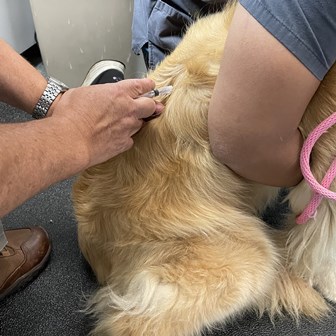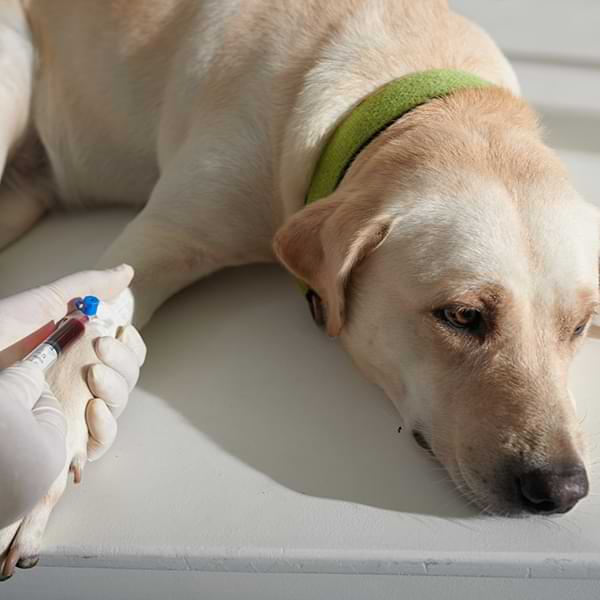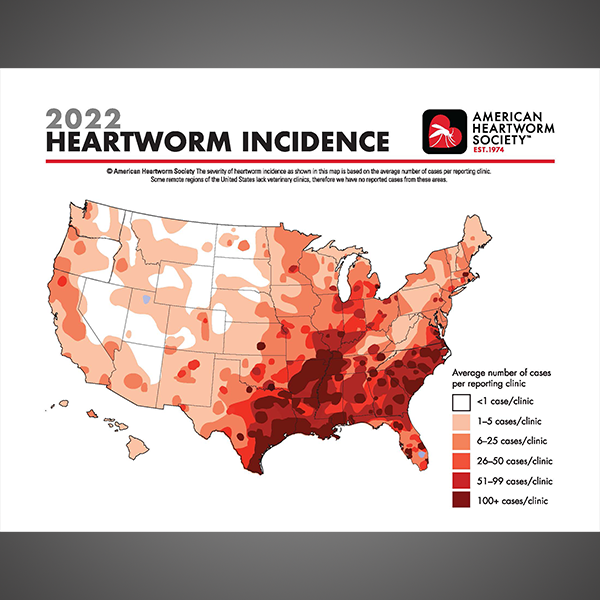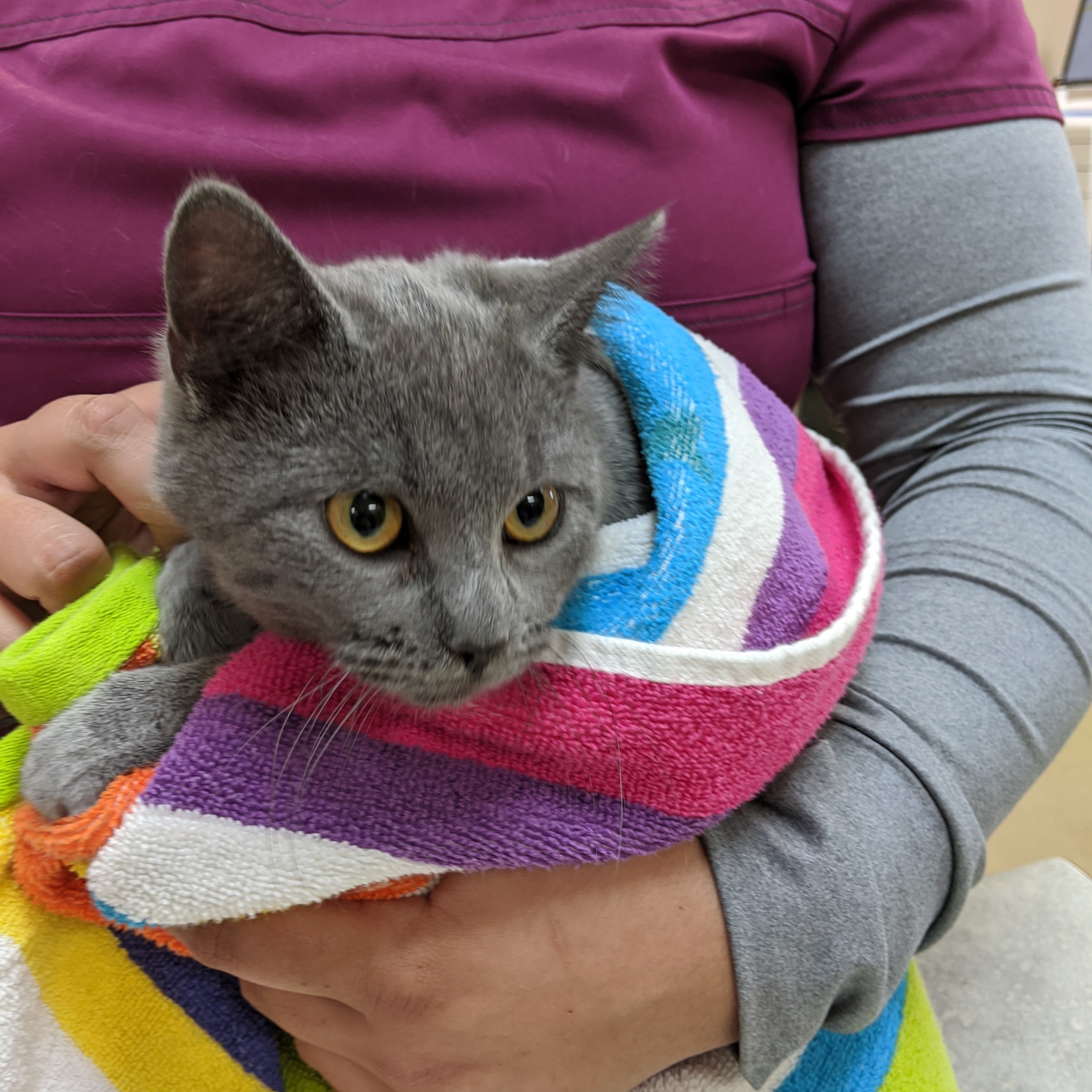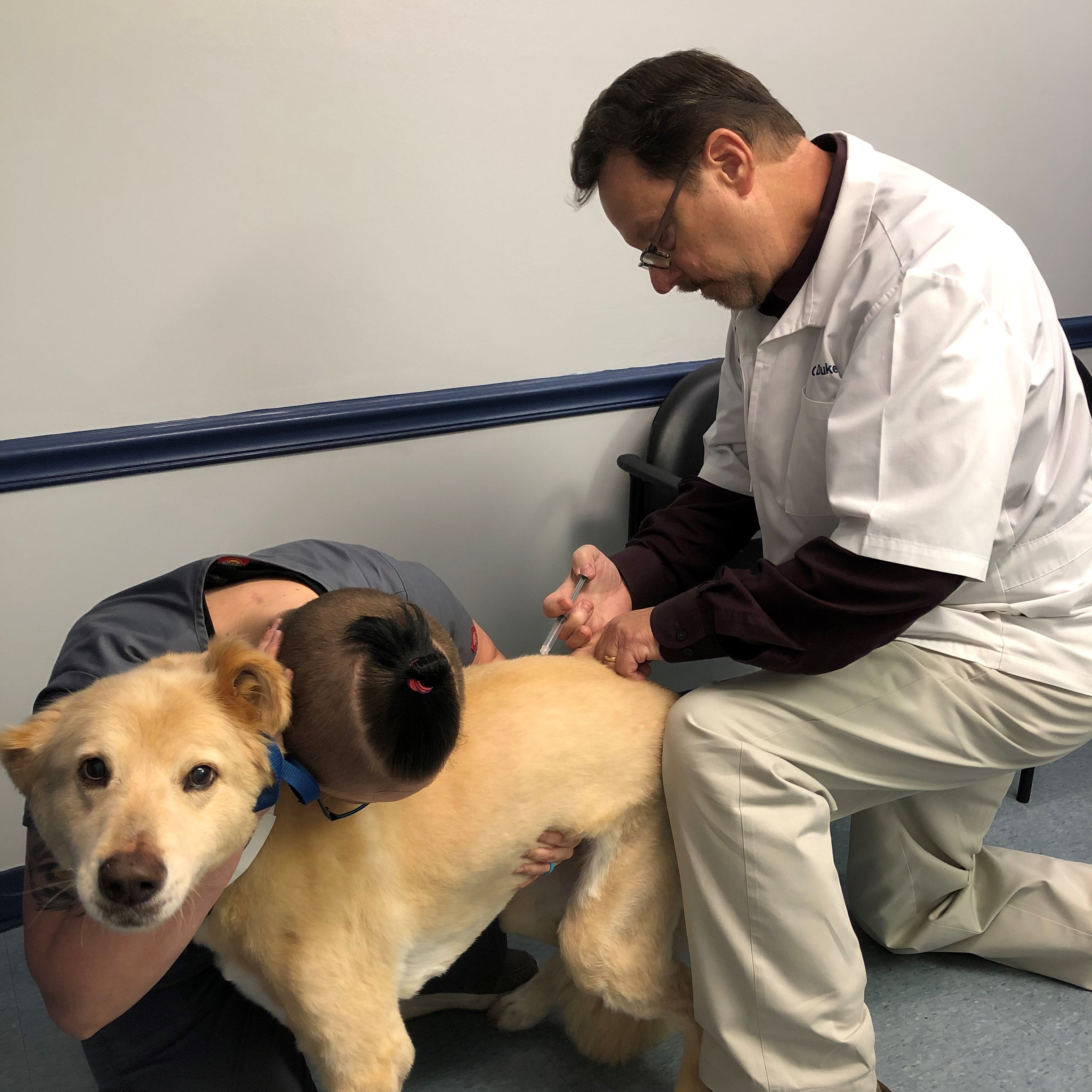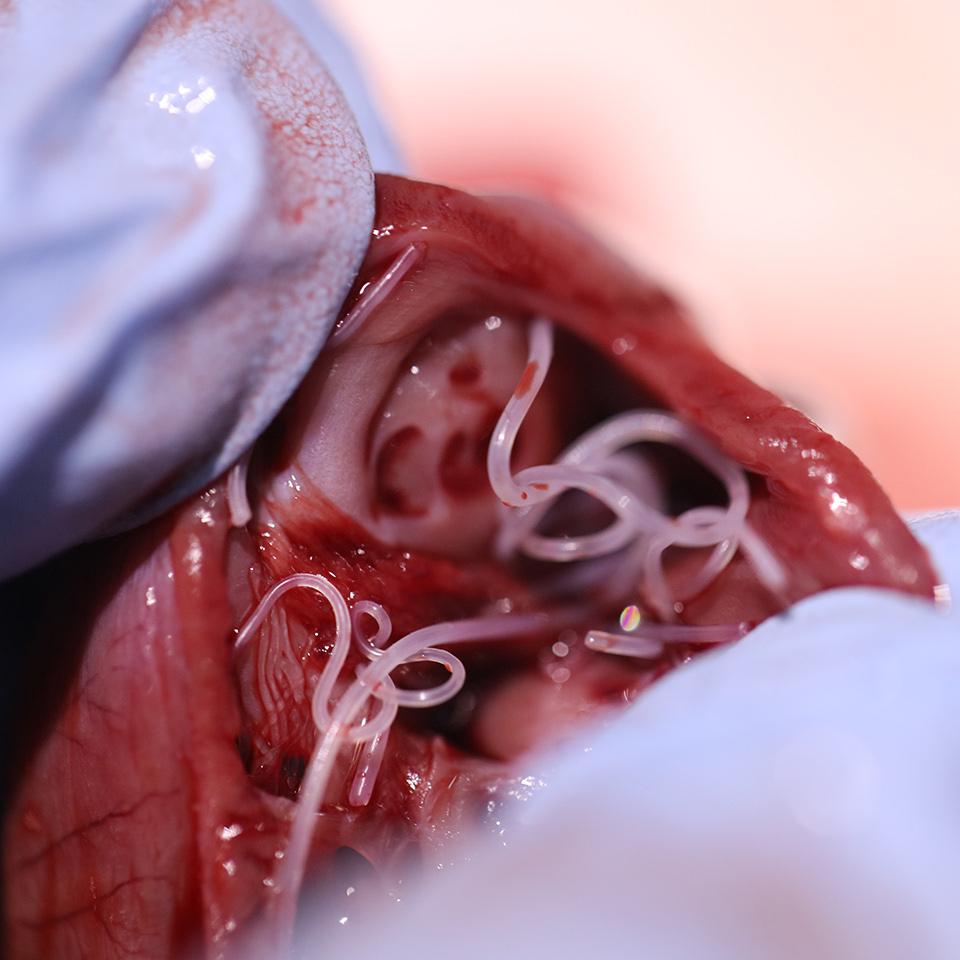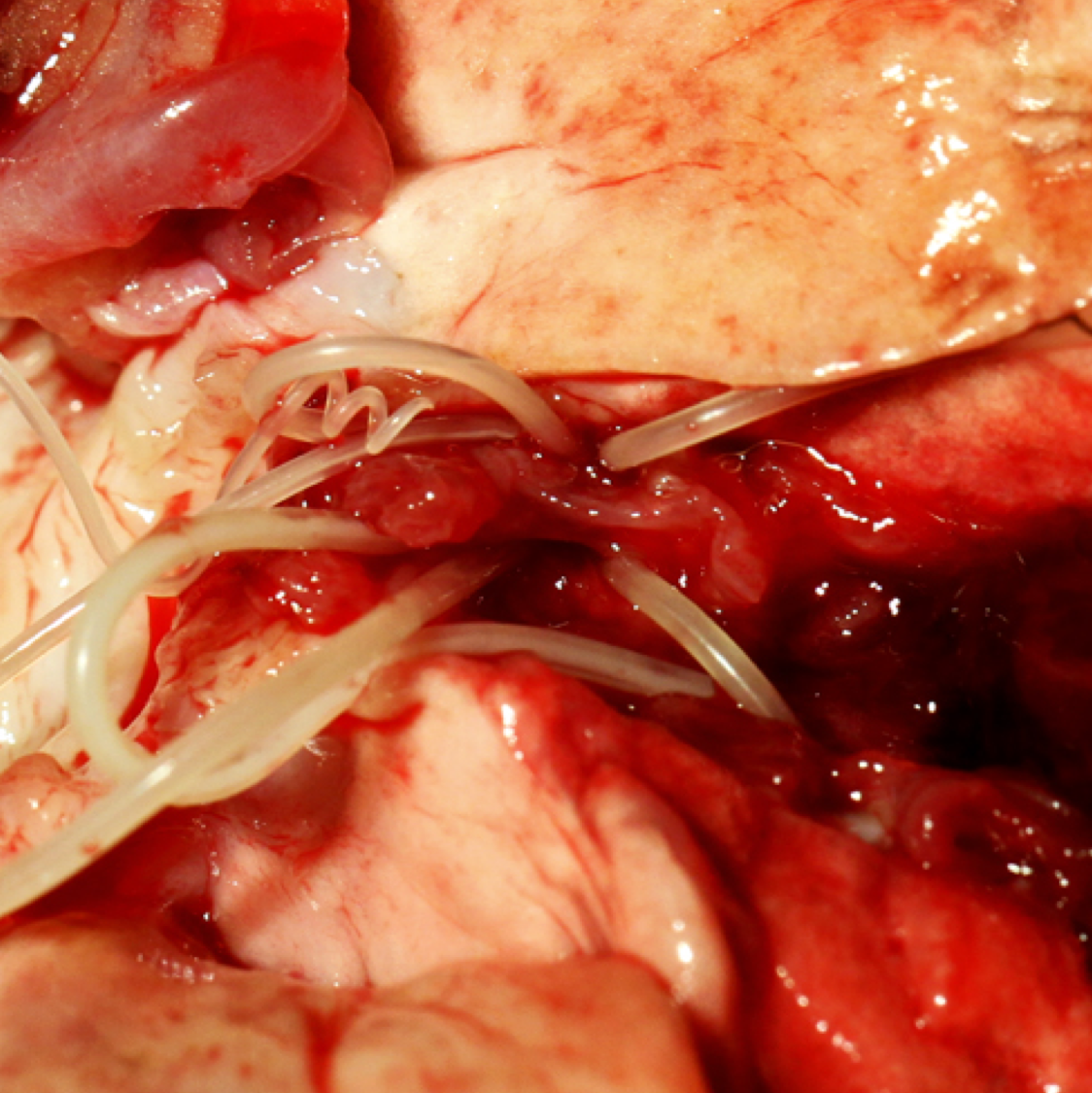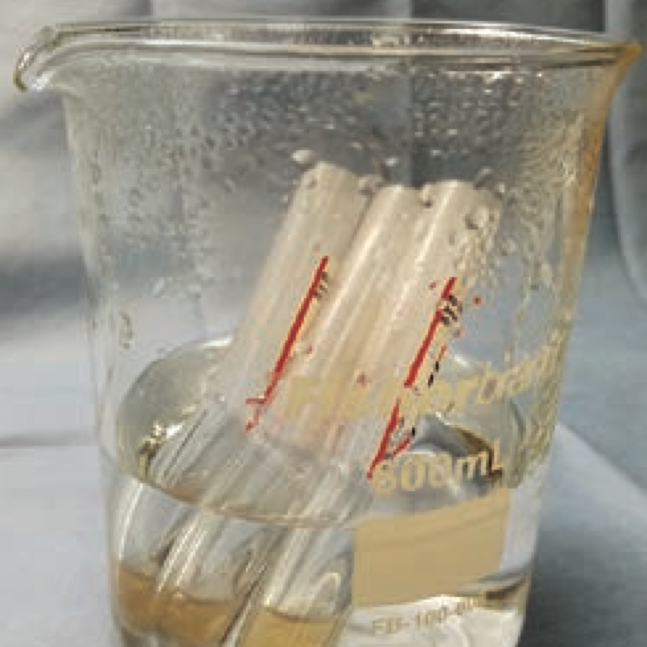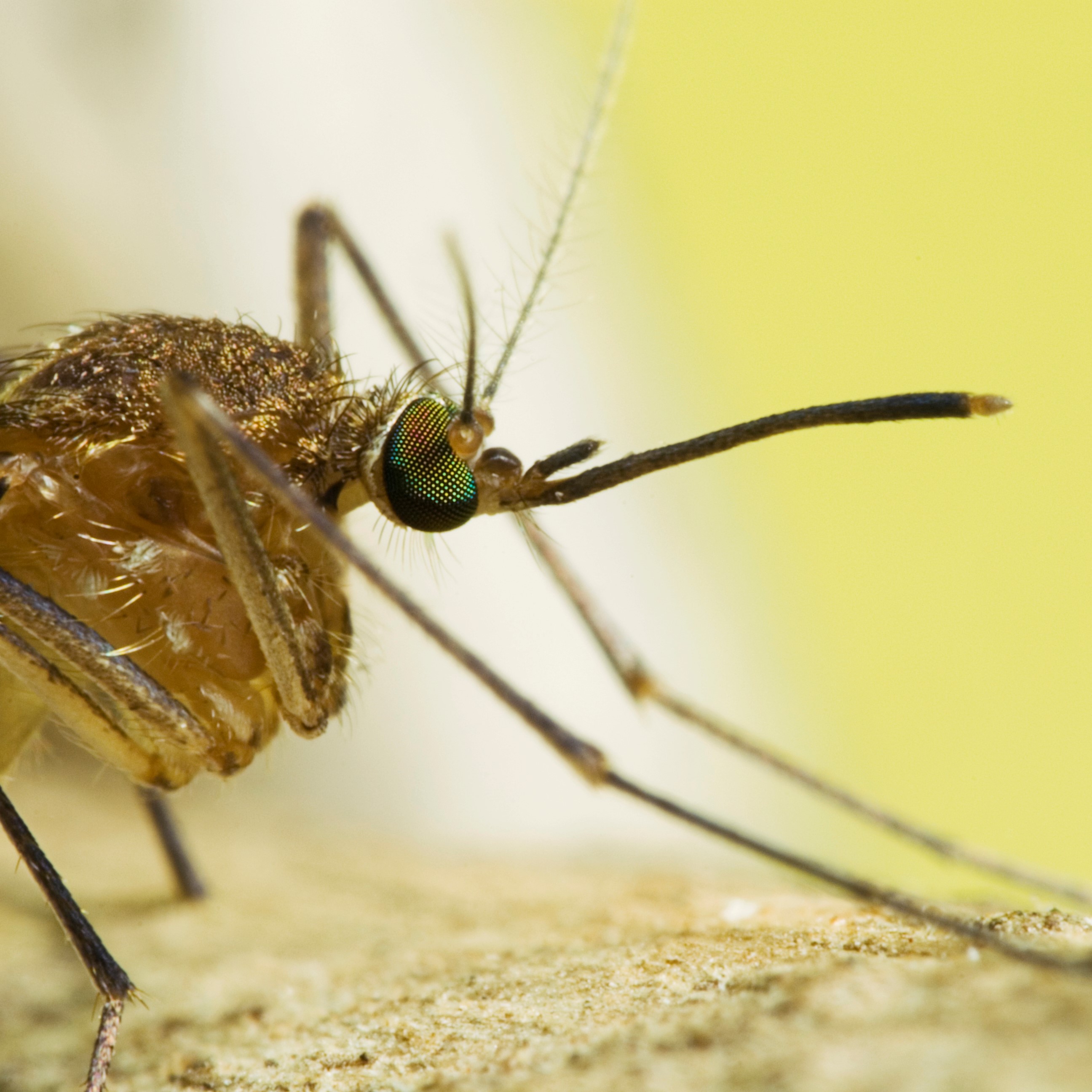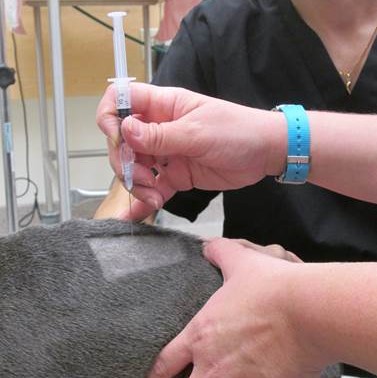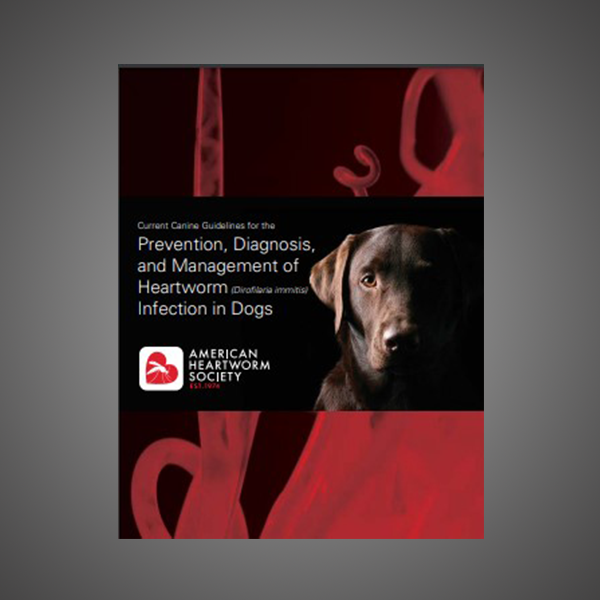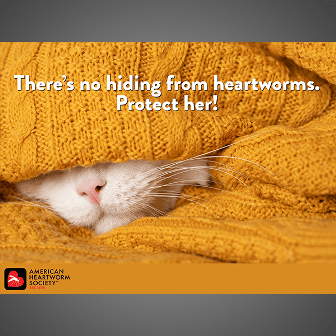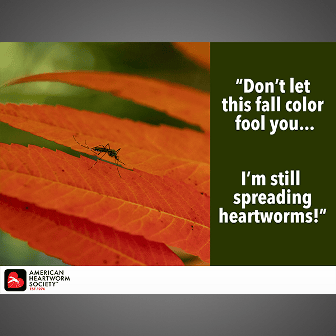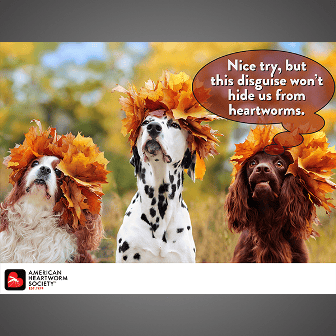Updated Canine Heartworm Guidelines
In this VETgirl blog, Dr. Jenni Rizzo summarizes the changes made in the 2024 update to the AHS Canine Heartworm Guidelines
Category: Clinical FAQsCanine | Cost | Diagnosis | Incidence | Life Cycle | Prevention | Shelters | Treatment | Veterinary Professionals
Read More
Does a dog with a positive Ag test and negative MF test need to be treated for heartworms?
The results of heartworm tests can sometimes raise questions as well as provide answers. This Clinical FAQ uses an algorithm to explain what veterinarians can conclude from differing test results
Category: Clinical FAQsCanine | Diagnosis | Life Cycle | Shelters | Treatment | Veterinary Professionals
Read More
Feline heartworm: Are YOU looking for it?
In this article, which was published in VETgirl's e-magazine, Dr. Tom Nelson explains the "how tos" of feline heartworm diagnosis.
Category: Clinical FAQsDiagnosis | Feline | Incidence | Prevention | Veterinary Professionals
Read More
New AHS Heartworm Incidence Map
In this Clinical Q&A, AHS President Dr. Jenni Rizzo explains the findings of the 2022 Heartworm Incidence Survey and what they tell us about the spread of heartworms in the U.S. as well as long-timer and emergy "hot spots."
Category: Clinical FAQsCanine | Diagnosis | Incidence | Prevention | Shelters | Veterinary Professionals
Read More
Which heartworm preventive is best?
With so many heartworm preventives available, it's not unreasonable for clients--and even veterinarians--to wonder which one is "best." The truth is that the BEST preventive is--quite simply--the preventive a pet owner will GIVE. As Dr. Elizabeth Clyde explains, factors like cost, covenience, mode of administration and frequency of administration all come into play.
Category: Clinical FAQsCost | Prevention | Veterinary Professionals
Read More
Patient Management after Two Melarsomine Injections
A newly adopted patient received two injections instead of three when treated for heartworm. Veterinarian Angele Bice explains.
Category: Clinical FAQsCanine | Cost | Shelters | Treatment | Veterinary Professionals
Read More
Managing Heartworm Disease in Zoo Animals
Zoo animals like marine mammals, big cats and others can become infected with heartworms. Fortunately, prevention is possible.
Category: Clinical FAQsDiagnosis | Exotics | Prevention | Veterinary Professionals
Read More
When a Treated Dog has Persistent Microfilaria
Dr. Tom Nelson explains the potential reasons a dog may test positive for microfilaria following heartworm treatment
Category: Clinical FAQsCanine | Diagnosis | Shelters | Treatment | Veterinary Professionals
Read More
Role of Antigen and Antibody Testing in Heartworm-Positive Cats
Veterinary parasitologist Dr. Lindsay Starkey outlines the role of antigen and antibody tests for heartworm screening in cats
Category: Clinical FAQsDiagnosis | Prevention | Shelters | Veterinary Professionals
Read More
Exercise Restriction Advice for Dogs Undergoing Heartworm Treatment
Successful treatment of dogs with heartworm infection requires keeping them quiet and calm, as Dr. Brian DiGangi explains.
Category: Clinical FAQsCanine | Shelters | Treatment | Veterinary Professionals
Read More
How to Treat Heartworm-Positive Cats
There are no approved heartworm treatments for cats, but veterinarians do have options when managing these patients. Veterinary cardiologist Dr. Marisa Ames explains.
Category: Clinical FAQsFeline | Prevention | Shelters | Treatment | Veterinary Professionals
Read More
Heartworm Diagnostics: Antigen Tests Alone Aren't Enough
How reliable are patient-side heartworm antigen tests? Veterinary parasitologist Dr. Lindsay Starkey explains.
Category: Clinical FAQsCanine | Diagnosis | Veterinary Professionals
Read More
Antigen Test Timing Following Melarsomine Treatment
How long should I wait before re-testing dogs undergoing heartworm treatment? Dr. Tom Nelson explains the timing.
Category: Clinical FAQsCanine | Diagnosis | Treatment | Veterinary Professionals
Read More
When Heartworm Treatment is Interrupted
When treating dogs for heartworm, what if there's a delay between giving doxycycline and melarsomine? Dr. Chris Duke explains.
Category: Clinical FAQsCanine | Treatment | Veterinary Professionals
Read More
Managing Dogs Treated with Non-AHS Protocols
When treating dogs for heartworm, what's the difference in efficacy between two and three injections of melarsomine? Dr. Angele Bice breaks it down.
Category: Clinical FAQsCanine | Treatment | Veterinary Professionals
Read More
Safe Transport of Heartworm-Positive Dogs
How can I safely transport dogs in the midst of heartworm treatment? Dr. Brian DiGangi shares the AHS/ASV recommendations.
Category: Clinical FAQsCanine | Diagnosis | Shelters | Transport of Infected Pets | Treatment | Veterinary Professionals
Read More
Heartworm Diagnostics: Antigen Tests Alone Aren’t Enough
How reliable are patient-side heartworm antigen tests? Veterinary parasitologist Dr. Lindsay Starkey explains.
Category: Clinical FAQsCanine | Diagnosis | Veterinary Professionals
Read More
The States of Heartworm Incidence
What does the latest AHS survey say about heartworm incidence? Dr. Chris Duke explains.
Category: Clinical FAQsCanine | Exotics | Feline | Incidence | Other | Veterinary Professionals
Read More
Hit the “Reset” Button on your Client Education Program
How should I educate my clients about heartworm prevention this spring? Dr. Chris Duke shares tips.
Category: Clinical FAQsCanine | Exotics | Feline | Other | Prevention | Veterinary Professionals
Read More
Heartworm Disease Causes Lifelong Damage
Can heartworm infection cause permanent damage in dogs? The answer is yes, says Dr. Stephen Jones.
Category: Clinical FAQsCanine | Prevention | Treatment | Veterinary Professionals
Read More
Tackling Tough Conversations
Can I cut corners on the AHS heartworm treatment protocol for dogs? AHS Past President Dr. Chris Rehm says "no."
Category: Clinical FAQsCanine | Treatment | Veterinary Professionals
Read More
Making the Case for Heartworm Prevention in Cats
Why is heartworm prevention important for cats? Dr. Elizabeth Clyde gives reasons.
Category: Clinical FAQsFeline | Prevention | Veterinary Professionals
Read More
The AHS Guidelines: 2018 Updates - Guidance on Prevention, Testing and Treatment
The AHS Guidelines: 2018 Updates - Guidance on Prevention, Testing and Treatment
Category: Clinical FAQsCanine | Diagnosis | Prevention | Treatment | Veterinary Professionals
Read More
The Wrath and Aftermath of Hurricanes
How can hurricanes lead to increases in heartworm incidence? There's a link, according to veterinary cardiologist Dr. Clarke Atkins.
Category: Clinical FAQsCanine | Feline | Prevention | Resistance | Transport of Infected Pets | Veterinary Professionals
Read More
The AHS Protocol vs. “Slow Kill”
Why does the AHS recommend against "slow kill" for heartworm treatment in dogs? Veterinary parasitologist Dr. Andy Moorhead has answers...
Category: Clinical FAQsCanine | Treatment | Veterinary Professionals
Read More
Why Don’t Clients Give Heartworm Preventives?
Why aren't clients always compliant in giving heartworm preventives? Dr. Stephen Jones shares his thoughts.
Category: Clinical FAQsCanine | Exotics | Feline | Other | Prevention | Veterinary Professionals
Read More
Is it Negative or Not? The Role of Heat Pretreatment in Heartworm Testing
What is the role of heat pretreatment in heartworm testing? Dr. Brian DiGangi explains when and why it may be needed.
Category: Clinical FAQsCanine | Diagnosis | Veterinary Professionals
Read More
Is There an Echo in Here?
How can you get veterinary clients to be compliant with heartworm prevention? Dr. Chris Dukes share his tips.
Category: Clinical FAQsCanine | Exotics | Feline | Other | Prevention | Veterinary Professionals
Read More
Can YOU Outsmart a Mosquito?
Why doesn't the AHS recommend "seasonal" heartworm prevention? Dr. Tom Nelson has answers.
Category: Clinical FAQsCanine | Exotics | Feline | Life Cycle | Other | Prevention | Veterinary Professionals
Read More
Make Heartworm Preventive Reminders a Priority
How can heartworm prevention reminders help with client compliance? Dr. Tom Nelson explains how reminders have helped in his practice.
Category: Clinical FAQsCanine | Exotics | Feline | Other | Prevention | Veterinary Professionals
Read More
Adulticide Treatment: Minimizing Melarsomine Complications
When treating heartworm-positive dogs with adulticide therapy, how can I minimize melarsomine complications? Dr. Stephen Jones explains.
Category: Clinical FAQsCanine | Treatment | Veterinary Professionals
Read More
Heartworm Prevention Needed Nationwide
Why is heartworm prevention needed nationwide? Veterinary cardiologist Dr. Matt Miller explains.
Category: Clinical FAQsCanine | Exotics | Feline | Other | Prevention | Veterinary Professionals
Read More
The Mighty Mosquito The Role of Control in Heartworm Prevention
What is multimodal heartworm prevention--and why is mosquito control important? Parasitologist Dr. John McCall explains.
Category: Clinical FAQsCanine | Exotics | Feline | Other | Prevention | Veterinary Professionals
Read More
Managing Heartworm Disease in Shelter Animals
MARTHA SMITH-BLACKMORE, DVM...
Category: Clinical FAQsCanine | Feline | For Owners | Prevention | Shelters
Read More
The Truth About Testing in Cats
What kind of heartworm testing is recommended for cats? Veterinary cardiologist Dr. Clarke Atkins sorts it out.
Category: Clinical FAQsDiagnosis | Feline | Veterinary Professionals
Read More
Cases in Point: Why the AHS Guidelines Matter
Why is it important to understand the AHS heartworm management guidelines? Dr. Elizabeth Clyde shares why it's important to her.
Category: Clinical FAQsCanine | Diagnosis | Exotics | Feline | Other | Prevention | Veterinary Professionals
Read More
Heartworm Compliance: Take a Team Approach
How can enlisting the entire veterinary team improve heartworm education? Practice owner Dr. Chris Rehm shares his experience.
Category: Clinical FAQsCanine | Diagnosis | Exotics | Feline | Other | Prevention | Veterinary Professionals
Read More
What’s the Protocol?

Associate Professor
Colorado State University,
College Of Veterinary Medicine...
Canine | Treatment | Veterinary Professionals
Read More


